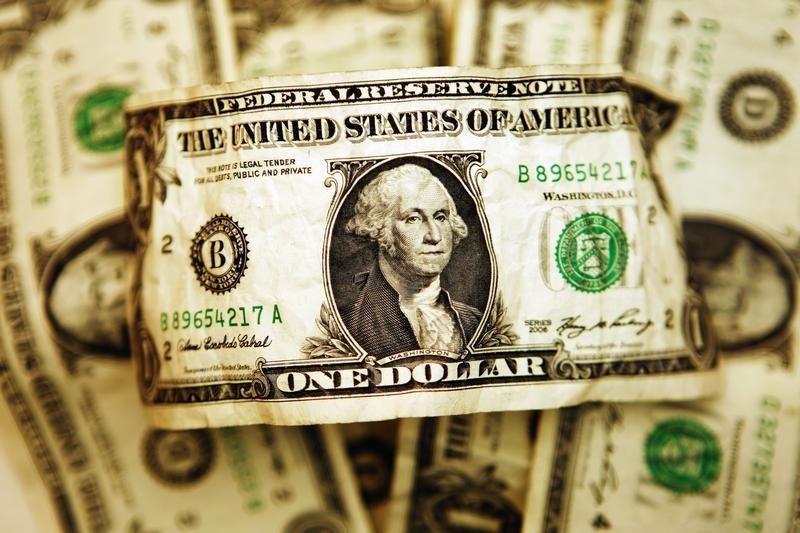(Bloomberg Gadfly) -- A Google (NASDAQ:GOOGL) search for the phrase "death of the dollar" produces about 168 million results in less than half a second, including articles, YouTube videos and books all predicting the demise of the U.S. currency. The greenback seems to have few friends.
After slumping against every major currency apart from the Brazilian Real last year, the dollar has started the first two trading weeks of 2018 by taking a renewed beating on the foreign exchange market.
The justifications for its weakness, though, seem to be excuses rather than reasons. There's the threat of a U.S. government shutdown. There's a pick-up in core inflation, as evidenced by Friday's figures. There are concerns that U.S. fourth-quarter earnings will disappoint. And there's the resurgence in the euro zone economy, which is giving the common currency a boost.
Except…the threat of a U.S. government shutdown is omnipresent, and has become something of an annual circus. Faster inflation has helped drive two-year Treasury yields to 2 percent, which should attract investors away from the negative 0.6 percent levels prevailing on comparable German notes. A weaker dollar should boost profit for U.S. exporters. And economists are predicting the U.S. economy will grow by 2.6 percent this year, still outstripping the euro zone's 2.2 percent forecast.
Lurking in the background are worries about a trade war between the U.S. and China. China's trade surplus with the U.S. rose by 13 percent to 1.87 trillion yuan ($291 billion) last year, according to China's customs administration.
But with the yuan climbing to its strongest against the dollar in two years, the risk of U.S. President Donald Trump making good on his campaign threat to label China a currency manipulator seems remote, especially since he backed away from that stance in April.
On Monday, Bundesbank board member Andreas Dombret revealed that the German central bank has decided to add the Chinese yuan to the currencies it uses in its foreign reserves. The yuan's share of global transactions on the world's main network, however, remains miniscule.
China's currency accounted for just 1.75 percent of transactions across the SWIFT network in November, down from an average in the past three years of almost 2 percent. The euro, meantime, is stuck with about a third of the market, after surpassing 40 percent for most of 2011 and 2012.
And while the dollar's 39 percent share is its lowest since February 2014, it's bang in line with its six-year average and up from less than 30 percent for most of the first half of 2012.
So for now, the dollar remains the currency of first choice for international transactions. Despite its current market weakness, reports of the death of the dollar remain greatly exaggerated.
This column does not necessarily reflect the opinion of Bloomberg LP and its owners.
Mark Gilbert is a Bloomberg Gadfly columnist covering asset management. He previously was a Bloomberg View columnist, and prior to that the London bureau chief for Bloomberg News. He is the author of “Complicit: How Greed and Collusion Made the Credit Crisis Unstoppable.”
